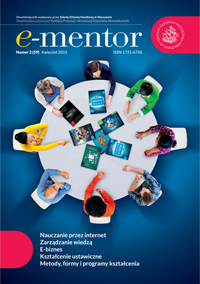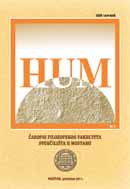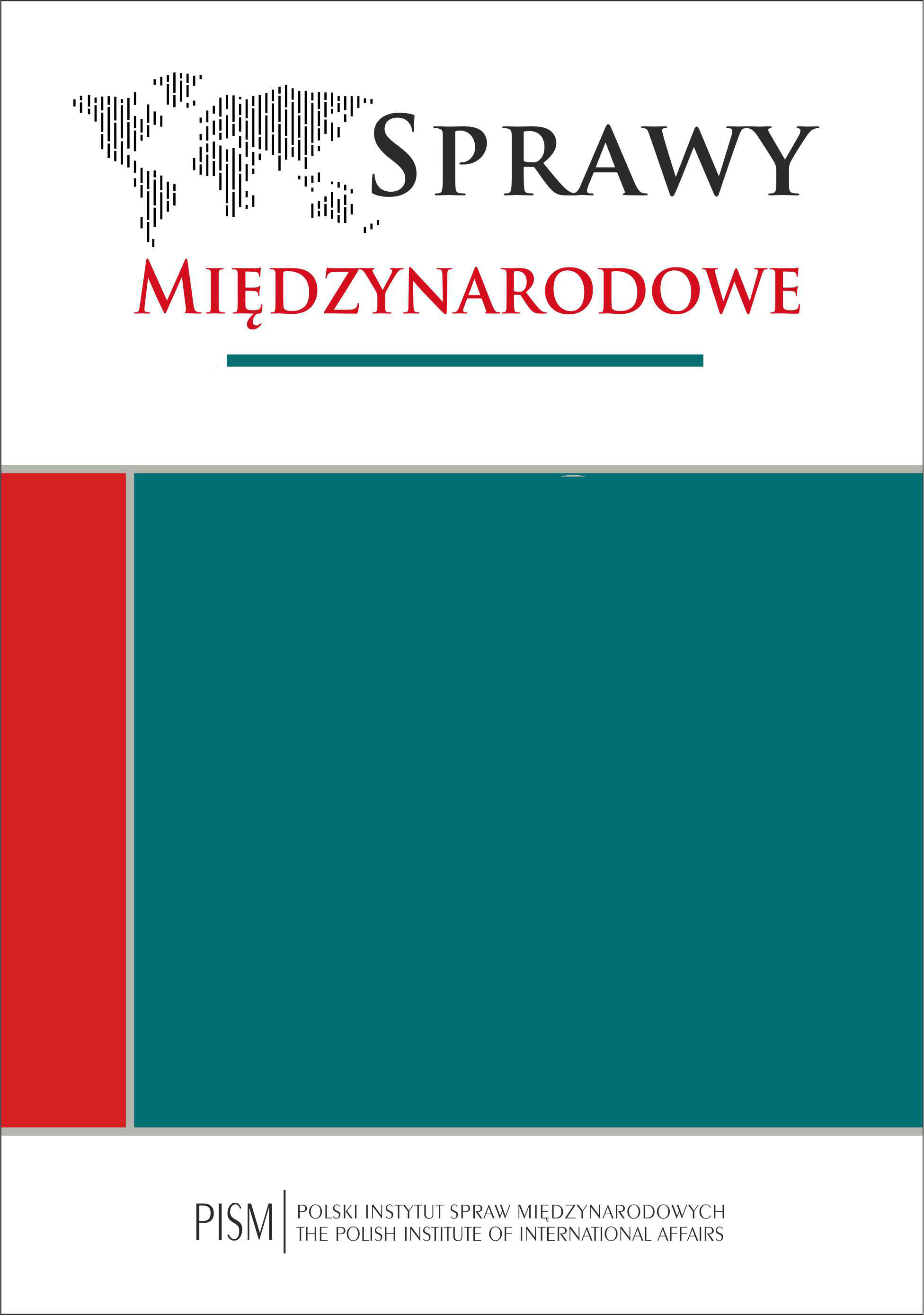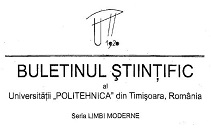


Keywords: knowledge-based economy; accounting; corporate reporting; financial capital; intellectual capital; post-industrial society; balance sheet; accounting theory
Contemporary corporate reporting is still focused on financial capital. Intellectual capital is ignored by conventional accounting. Scientific revolution should be expected in this area. It is not possible to avoid it, especially since other social sciences - sociology, economics and management - have already resolved this issue and the phenomenon of emergence of the knowledge-based economy cannot be denied. Accounting is powerful tool for social impact. Its paradigm determines social imagination of economic processes, and it should be based on the axiological principle of true and fair view. The aim of this paper is to present a clear fact: accounting paradigm focused on financial capital inhibits the development of a knowledge-based economy and post-industrial society. The article contains the proof: the traditional balance sheets focused on tradable assets and financial capital is not suitable for providing a true and fair view of the knowledge-based enterprises. The analysis is an invitation to take a broad and interdisciplinary research on the role of financial accounting in the modern society. Accounting should not be shaped exclusively by accountants corporations. Every contemporary economist, sociologist, philosopher, logician, mathematician, and even a lawyer and ethicist, who feels partly responsible for the future of the economy and society, has a duty to be interested in accounting theory and the shape of the financial statements.
More...
Keywords: Finnish education system; Polish education system; PISA rankings
Finland is an unquestionable word leader as far as efficiency of its education system is concerned. Finnish pupils have been top performers in the PISA rankings for many years. Many researchers debate on the reasons of the Finland's success. This paper aims to further analyse the key success factors of the Finnish education system. Special emphasis is put on financial and non-financial inputs explaining the Finland's success. The comparisons with the Polish education system aims to discover those factors which impact and explain the differences between the two countries.
More...
Keywords: Massive Open Online Courses; MOOC; Warsaw University of Technology; Foundation of Young Science; Polish Platform MOOC
The conference Moc MOOC-ów - czas na polską platformę (Power of MOOCs - time for a Polish platform) was held on 20th January 2015 at the Faculty of Electronics and Information Technology of Warsaw University of Technology. This event was initiated by The Foundation of Young Science. The main aim of this conference was to initiate cooperation between partners interested in building the Polish MOOC platform and promulgate scientific knowledge. The participants of this conference were representatives of science, politics and industry. New opportunities of creation and development of an open Polish Platform MOOC and also popularization of this new form of education in Poland were discussed. The Letter of Intent - written symbol of supporting the creation of the Polish Platform MOOC was signed as a result of the first part of the debate. All of the participants jointly supported the initiative of creating the Polish Platform MOOC.
More...
Keywords: polish consumer; brand-related activities; Web 2.0; social network; interactive platforms; Internet users
The development of new online trends, particularly the Web 2.0, has caused a social engagement growth of internet users and, as a result, further development of social networking channels and other different types of interactive platforms. The internet encourages consumers to interact with web sites, and through them with other users. It also enables them to create content on any subject, as for instance, associated with brands and products. consequently, generating a valuable source of information and research area for organizations. This study aims to identify the involvement of Polish Internet users with consumer's online brand related activities (COBRA). Concerning this issue, the authors investigated a total of 2253 Internet users in an exploratory study revealing the intensity of their participation in 31 activities ranging from low to high engagement. It turned out that polish consumers are more willing to engage into activities belonging to the consuming COBRA type, rather than to the ones pertinent to the creating COBRA type.
More...
Keywords: Open Source Software; economic growth; property rights; non-rival goods; non-excludable goods; egoism
Open Source Software (OSS) community is challenging the traditional meaning of property rights. The way the OSS products are developed and distributed is questioning the right to exclude others from using the goods and introduces the right to distribute and modify software for free. The economic impact of the Open Source Software contribution is significant, it has been estimated that it represents c.a. 30% of the software market. There is an increasing interest in studying OSS communities, however there have been a small number of studies investigating the general role of the OSS in the economic growth. Therefore the lack of theory linking the economic growth and OSS contribution represents the main theoretical problem of this paper. The goal of this article is to prove that the existence of OSS communities increases the quantity of non-rival and non-excludable goods, which - according to endogenous model of growth - leads to economic growth. Additionally the study findings undermine the neoclassical theory of property rights in terms of non-rival and non-excludable goods. The structure of the paper is organized as follows. In section 1 the article focuses on the literature addressing the role of the non-rival and non-excludable goods in the theory of growth and theory of property rights. Section 2, contains the literature review of the OSS socio-economic phenomena and argues that the neoclassical theory of rights is inadequate to explain OSS market existence. Section 3 of the paper summarizes the main conclusions and discusses the general motivation behind the creation of the non-excludable and non-rival goods as well as the diminishing role of the egoism as the origin of the economic growth. From the methodological point of view the paper represents a literature review and a critical analysis of the endogenous growth theory and the theory of property rights.
More...
Keywords: salary expectations; graduates; first employer; first job; Wroclaw University of Technology; labor market
Students and graduates from universities undertake professional activity, but rarely are able to accurately assess the value of their qualifications. This paper presents expected net salary for first job among students and graduates from Wroclaw University of Technology. Participants of the survey consider 2648 zloty net (per month) as satisfactory wage. A large group of respondents are in demand specialists in the labor market, which are characterized by high wage expectations. Financial expectations of university graduates are comparable and are growing every year. High aspirations for the salaries are justified by strong demand for skilled workers. Results of the survey can be important for students and graduates joining the labor market, and employers who want hire fresh alumni.
More...
Keywords: Completion Agenda; higher education; performance-based funding; competency-based education
The Completion Agenda is part of a larger transformative shift in education, which is moving from a focus on providing instruction to a focus on producing results. This gradual but profound paradigm shift has been underway for multiple decades, and its impact on higher education cannot be understated; as one well-known description of this phenomenon noted, shifting the focus from teaching to learning „changes everything” about how higher education is conducted. Grounded in the increasingly close relationship between educational attainment and economic success, this results-oriented approach is driving many of the major efforts for change in U.S. higher education, including the Completion Agenda, performance-based funding, the revived interest in competency-based education, and standardized assessments such as the Collegiate Learning Assessment.
More...
Keywords: competencies; project managers; identification of competencies; evaluation of competencies; self-assesment; project success criteria
The subject of project managers' competencies was very popular in scientific research over the past decades. A great number of academic researchers studied the field of project manager's competencies, its impact on project success and correlation to project performance and key characteristics of a project environment. The aim of this literature study was to analyze methodological aspects of aforementioned studies in order to identify research patterns applied, research instruments used, respondents' profiles and others. It's understandable that publications related to competencies of project managers can be found in leading project management journals. These articles constituted also a basis of the analysis. Furthermore, publications considered were narrowed to those focused on at least one of three appointed aspects, namely identification of competencies, their evaluation or relative importance assessment. Over a dozen of articles were obtained as the outcome of journals review. Key characteristics of selected studies were systematically analyzed and compared, including, among others, construction of the respondents group, examined subset of competencies and the approach adopted to identification and evaluation of competencies. As a result some patterns and repeatable elements were found. Moreover, two identified contentious practices were discussed - usage of a self-assessment to evaluate performance of respondent and usage of project success criteria aimed at assessing the performance of a project manager.
More...
Keywords: graduates; labor market
For years ongoing discussion whether education should be more academic or professional, whether and to what extent higher education is designed to meet the labor market and social needs, how to bring universities closer to the labor market and thus, to potential employers, and finally how to influence schools (and candidates) to educate in the fields and professions with high demand in the labor market. Currently observed problems are evidence of the lack of a holistic view of the labor market and education. The aim of the study was to confront last years students' notions of the labor market and its requirements with the reality found by graduates. The implementation of the study was divided into 3 stages. The first phase was completed in 2010 on a sample of 325 last years students, the second in 2012, resulting in collecting 240 declaration of consent and participation and the third in 2013, which ended with collecting 90 surveys form graduates. There is the social belief that the ability to find a satisfactory place at unsustainable labor market varies for different social categories. The situation is different for men and women, for urban and rural areas, for low and narrowly skilled workers. The consequence of such thinking was (and to some extent still is) the belief that having a higher education is an important asset in searching for a (better) job and in extreme perception is a guarantee of its acquisition. As a result of such belief is clearly perceptible lack of employment of university graduates or lack of satisfaction due to getting a job incompatible with the interests and qualifications. In this situation taking the perspective of students/graduates under consideration and collating of their professional and educational aspirations with regional labor market needs and responsiveness are important components.
More...
Keywords: autistic children; social project; open source software movement; mobile application; behavioral therapy; Gdańsk University of Technology; Institute for Child Development in Gdańsk; assistive technologies; social exclusion
The article presents a case study of training engineers through social projects in the open source software movement. The project is aimed at development of a mobile application for behavioral therapy of autistic children. The application was developed within the framework of the students' group project carried out at Gdansk University of Technology with the participation of the Institute for Child Development in Gdansk. Paper presents design, implementation and evaluation of system, that supports activity schedule method of therapy. Such assistive technologies could improve behavioral therapy efficiency and as a result support self-care and independence of autistics, hopefully preventing their exclusion from the society. The case was evaluated from two perspectives: technological support provided for autistics' therapy as well as development of students' attitudes. Based on the therapists' and supervisor's evaluation as well as on analysis of final students' report, one might observe, that although student's motivations were diverse at the beginning of the project, by the end they fluctuated towards more intrinsic and altruistic ones. The example shows that the development of young people's sensitivity to social needs could be woven into the curriculum by defining individual projects for social institutions that provide help.
More...
Keywords: workshop module; Moodle; blended learning
At present, there is a very wide range of tools that support the process of education using the Internet in higher education. Moodle is one of a well-known free software systems. In this paper, one of its modules - Workshop, is presented. It focuses on its functionality and also advantages and disadvantages of its usage in blended learning.
More...



